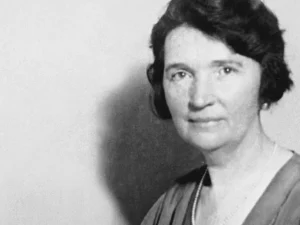Women’s health and rights have been the subject of ongoing debates and discussions across the globe. From reproductive rights to access to healthcare, it is essential to address these issues and work towards empowering women. This blog post aims to shed light on the importance of women’s health and rights, providing educational content and advocating for change.

Sparnod Fitness STH‑3002 Home Walking Pad Treadmill
Ultra‑slim, compact, and ready to use—no assembly needed. 2.5 HP motor, 1‑6 km/h speed, 2‑level incline, shock absorption, LED display, rolls under bed.
👉 View on AmazonReproductive Rights: A Fundamental Aspect of Women’s Health
Reproductive rights encompass a range of issues, including the right to access contraception, safe and legal abortion, and comprehensive sexual education. These rights are fundamental in ensuring women have control over their bodies and can make informed decisions about their reproductive health.
Access to contraception plays a crucial role in preventing unintended pregnancies and allowing women to plan their families. By providing women with a choice, we empower them to pursue education, careers, and personal goals without sacrificing their reproductive health.
Furthermore, safe and legal abortion services are essential for women’s health and rights. Restricting access to abortion not only jeopardizes women’s physical and mental well-being but also infringes upon their autonomy and decision-making capacity. It is imperative to advocate for laws that protect and uphold women’s right to choose.
Comprehensive sexual education is another vital component of reproductive rights. By providing accurate and inclusive information about sexuality, consent, and contraception, we equip young women with the knowledge and skills necessary to make informed decisions about their sexual and reproductive health.
Access to Healthcare: A Cornerstone of Women’s Well-being
Access to quality healthcare is crucial for women to maintain their well-being and address specific health concerns. Unfortunately, many women face barriers when it comes to accessing healthcare services.
One of the primary barriers is financial. High healthcare costs, lack of insurance coverage, and limited access to affordable healthcare facilities prevent many women from seeking necessary medical care. This is particularly true for marginalized communities and low-income individuals.
Additionally, geographical barriers can hinder women’s access to healthcare. Rural areas often lack healthcare facilities, making it difficult for women to receive timely and adequate medical attention. This issue is compounded by transportation challenges, especially for those without reliable means of transportation.

Sparnod Fitness STH‑3002 Home Walking Pad Treadmill
Ultra‑slim, compact, and ready to use—no assembly needed. 2.5 HP motor, 1‑6 km/h speed, 2‑level incline, shock absorption, LED display, rolls under bed.
👉 View on AmazonLanguage and cultural barriers can also pose challenges for women seeking healthcare. Limited availability of healthcare providers who speak the same language or understand cultural nuances can lead to miscommunication and inadequate care.
Addressing these barriers requires a multifaceted approach. Governments and policymakers must work towards implementing policies that ensure affordable and accessible healthcare for all women. This includes expanding insurance coverage, investing in healthcare infrastructure, and providing resources to underserved communities.
Furthermore, healthcare providers should receive cultural competency training to better understand and cater to the diverse needs of women from different backgrounds. By breaking down these barriers, we can ensure that women have the opportunity to receive the healthcare they need and deserve.
Women-Specific Health Issues: Education and Awareness
Women face unique health challenges that require specialized attention and care. It is crucial to educate women about these specific health issues and promote awareness to improve overall health outcomes.
One such issue is breast cancer. Breast cancer is the most common cancer among women worldwide, and early detection is key to successful treatment. Educating women about breast self-examinations, regular mammograms, and the importance of seeking medical attention for any abnormalities can save lives.
Another prevalent women-specific health issue is cervical cancer. Regular Pap smears and the human papillomavirus (HPV) vaccine can significantly reduce the risk of developing cervical cancer. By providing information and resources, we empower women to take control of their cervical health.
Other women-specific health concerns include menopause, osteoporosis, and reproductive disorders. By raising awareness and providing educational content, women can make informed decisions about their health, seek appropriate medical care, and take proactive steps to prevent and manage these conditions.
Advocacy: Amplifying Women’s Voices
Advocacy plays a crucial role in promoting women’s health and rights. By amplifying women’s voices and advocating for policy changes, we can create a society that respects and upholds women’s autonomy, dignity, and well-being.
Advocacy efforts should focus on engaging with policymakers, raising public awareness, and supporting organizations that work towards women’s health and rights. By collaborating with like-minded individuals and organizations, we can create a collective impact and drive meaningful change.
It is essential to support grassroots movements and initiatives that champion women’s health and rights. By empowering women to share their stories and experiences, we can shed light on the challenges they face and mobilize support for necessary changes.
Furthermore, advocating for comprehensive sexual education in schools, supporting legislation that protects reproductive rights, and demanding equal access to healthcare are vital steps towards achieving gender equality and ensuring women’s health and rights are prioritized.
Conclusion
Women’s health and rights are crucial aspects of achieving gender equality and empowering women. By addressing issues such as reproductive rights, access to healthcare, and women-specific health concerns, we can create a society that values and respects women’s autonomy and well-being.
Educational content and advocacy efforts are essential in raising awareness, challenging societal norms, and driving policy changes. By working together, we can ensure that women have the knowledge, resources, and support they need to make informed decisions about their health and exercise their rights.
Let us continue to strive for a world where women’s health and rights are protected, celebrated, and prioritized.

Sparnod Fitness STH‑3002 Home Walking Pad Treadmill
Ultra‑slim, compact, and ready to use—no assembly needed. 2.5 HP motor, 1‑6 km/h speed, 2‑level incline, shock absorption, LED display, rolls under bed.
👉 View on Amazon







































